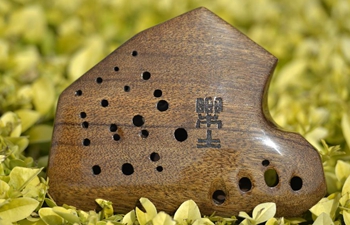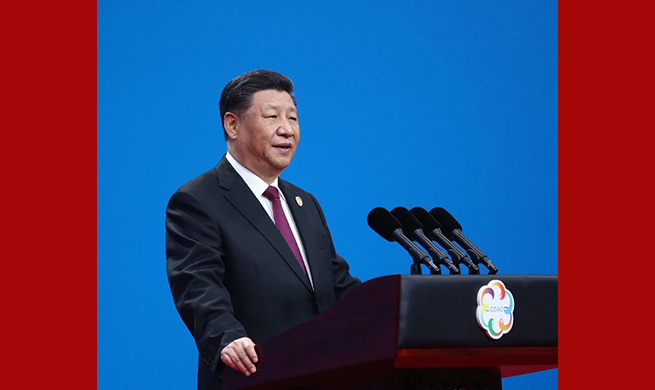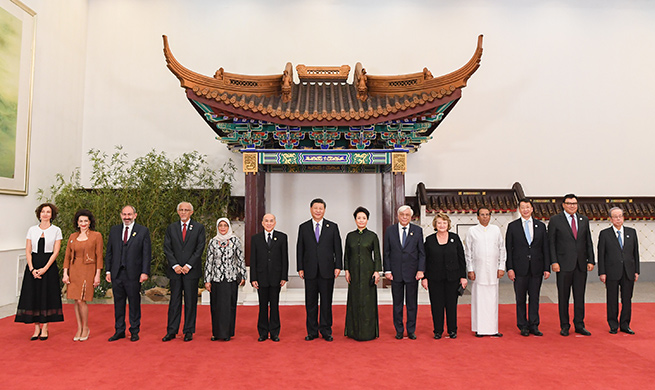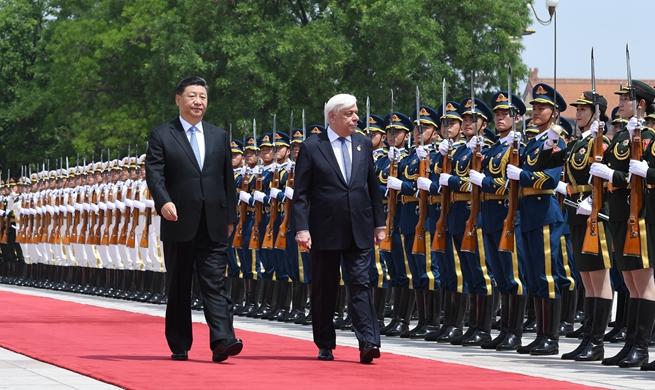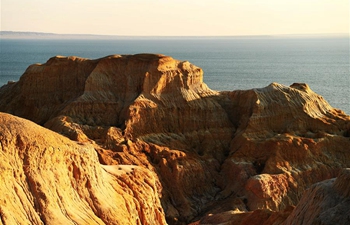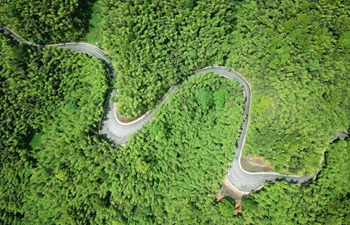by Burak Akinci
ANKARA, May 16 (Xinhua) -- Illegal treasure hunting has become a real menace in recent years to Turkey's vast archeological assets and poses a serious problem for the country's cultural and historical heritage, experts said.
"There is a serious degradation in Turkey's cultural assets caused by illegal treasure hunters in the past few years especially," Soner Atesogullari, head of Turkey's Archeologists Association, told Xinhua.
"Every single year, archeological artifacts recovered in thousands of illegal excavations by treasure hunters are damaged and sold to domestic or foreign buyers," he said, putting the number of such hunters at "thousands."
"Trove hunting must be banned in Turkey," Atesogullari added.
Treasure hunters in Turkey have even organized under an association, drawing the ire of the archaeology community which warned the move could speed up the plundering of ancient heritage.
The Anatolia Treasure Hunters Training and Research Association, which was established recently, stresses in its charter that it was founded to educate, train and gather people who are interested in treasure hunting while raising awareness.
Archaeologists, however, doubt the true intentions of the new association.
"We find it strange that an association could be founded by the approval of the state, although it would work to damage the cultural heritage of Anatolia with illegal excavations," Atesogullari said.
Archeologists believe that the main aim of the organization is to sell metal detectors, a lucrative business across Turkey. They call on authorities to control and prohibit such transactions and enforce severe legal punishments.
A Xinhua reporter called a telephone number in Istanbul listed on the Internet to inquire on metal detectors, pretending to be a beginner in treasure hunting in pursuit of gold and silver in central Anatolia, where has a rich oenological history.
The answerer guaranteed that "if you are looking for any kind of buried precious metals, I can provide you with the adequate detector," asking up to 10,000 Turkish liras (1,650 U.S. dollars) for the machine.
In fact, Turkey issues licenses for treasure hunting, but under the current regulation, the person who is granted such a license is only authorized do so in specific locations in limited time.
The Ankara-based Safeguarding Archeological Assets of Turkey (SARAT) explained that "people everywhere are fascinated by treasures and treasure hunting."
"So, licenses can be seen as an attempt to bring this desire under control by allowing people to hunt treasures under regulation," SARAT said.
A treasure hunter can receive 50 percent of the treasure if it is found on state-owned land. If it is found on private land, the private owner will receive 10 percent and the treasure hunter receive 40 percent, while the remaining goes to the state.
But only a fraction of trove hunters are licensed.
"Treasure hunting is a plague for our history. It's a disease that should be rapidly and vehemently eradicated in order to preserve our cultural geography from devastation," Turkish historian Ilber Ortayli wrote in a column of the Hurriyet daily.
He warned citizens, as well as local and central government authorities, to be alert on those people "who lurk and do business in small towns of Anatolia which harbor the most precious objects of the world."
Turkish police arrest hundreds of illegal treasure hunters each year in Turkey.
In March, an ancient mosaic bearing geometrical patterns and ancient letters was unearthed during an illegal excavation in Turkey's northwestern Canakkale province.
Officials were expected to conduct a rescue operation in the area to protect the precious mosaic and find out its exact origin, the Sabah daily reported.




